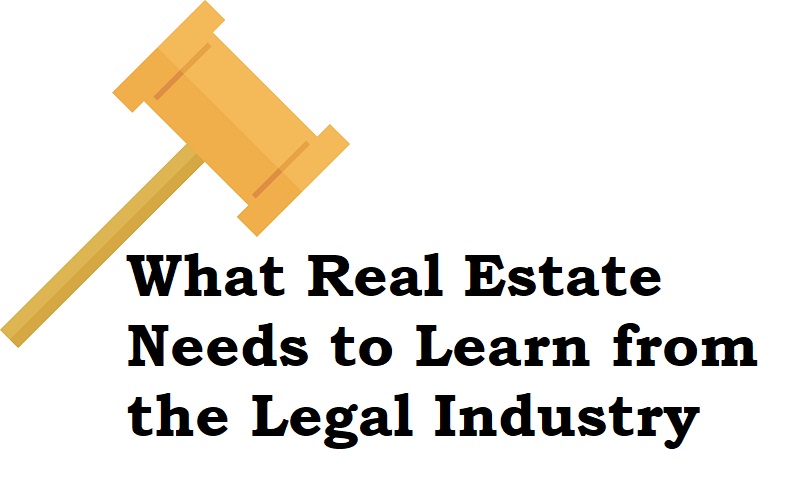Note: This article was originally published by William Gary, MBA, MIM on MacLaurin Williams, LLC. Permission to republish has been granted. Click here to read the original version.
How to Identify the Best Commercial Tenant Agent
Commercial Tenants and Buyers often complain that “their” supposed Real Estate Broker seems more interested in depositing a commission check than in helping them to find the right workspace at the best price. Sadly, they are quite correct. Far worse, do Occupiers understand what’s wrong when Brokers try to “double-end” their deals and pocket commission checks on both sides of the table? In commercial real estate parlance, this is aptly known as “double-dipping” and it’s not good for Tenants and Owner-Occupants.
Even Landlords and Sellers may feel pressured by their Listing Brokers, Landlords’ Agents or Sellers’ Agents to make price reductions or to accept offers that are less than what they wanted. On the other side of the table, Tenants and Buyers can feel their arms painfully twisted by “their” Brokers to pay more than they had budgeted to lease space or purchase a building.
So whose Broker is whose and what’s really going on? And why does it matter so much?
DIRTY SECRET NO ONE WANTS TO TALK ABOUT
Shockingly, in many transactions in the US, Commercial Real Estate Brokers have no (zero) legal obligation to look out for the best interests of the Tenants or Buyers they work with. However, many Tenants and Buyers are woefully unaware of this troubling fact.
Laws in at least 25 US states now allow a Commercial Broker to work with a Tenant or Buyer as a Transaction Broker, Facilitator, Intermediary, Dual Agent or Subagent. All but the last of these are pure middlemen. None of them have any legal fiduciary duties of loyalty or obedience to the Tenant or Buyer they work with.
In some states, Texas as one example, the “Client” legally is not even a Client of an Intermediary, Transaction Broker or Facilitator; he or she is merely a “Customer.”
Such Brokers might work “with” you as their Customer, but certainly not “for” you as your advocate. That’s a critical distinction. They’re definitely not your Tenant Representative, 100% Tenant Rep, Tenant’s Agent or Buyer’s Agent.
All fifty (50) states provide avenues for Commercial Brokers to double-end deals, i.e. work with both the Landlord and Tenant or both the Buyer and Seller in the very same transaction and, thereby, avoid any obligation to split or share commissions with an outside “Cooperating Broker“. A Broker (or his or her Brokerage House/Company) is legally allowed to keep the commissions on both sides of a transaction; hence the term “double-dipping“.
In such instances, detractors, including Consumer Advocates, maintain that neither a Tenant nor an Owner-Occupant is actually represented. That’s accurate because neither has an advocate nor champion truly sitting on his or her side of the table.
A Consumer, in this case a Tenant or Owner-Occupant, should not assume that his or her Broker is obligated to represent his or her best interests, and his or her best interests alone, until one has first seen a formal, written disclosure describing the agency relationship under which real estate services are being provided. Tenants and Owner-Occupants should see this disclosure upfront, too, not at the closing table as some Tenants report Big Brokerage Houses are doing. By then, it’s usually way too late to hire a 100% Tenant Rep as an advocate and start over.
Even Landlords and Sellers looking to negotiate the best commission rates, to obtain the highest levels of service and to protect their legal rights in the event of a dispute, should start the process by making certain that they fully understand the form of representation that a Broker is offering to provide them.
Is it a “Single Agency” relationship, which is the optimum and best relationship for the Consumer? That is The Gold Standard of Representation, especially for Tenants and Owner-Occupants.
Or is it a legal relationship that leaves the door open for a Broker or his or her company to double-end the deal and double-dip on commissions?
TYPES OF AGENCY RELATIONSHIPS
Agency relationships are created when one person or party agrees to act on another’s behalf, or to represent them in dealings with a third party.
Once an agency relationship is established, Brokers (as Agents) owe their Clients “fiduciary duties of loyalty and obedience.” In a Single Agency relationship, Agents are typically required to place their Clients’ interests above and ahead of their own. They do so by providing advocacy services with honesty and good faith, while carefully avoiding conflicts of interest or “self-dealing.”
There is confusion, though, because rules governing agency relationships between Consumers and Real Estate Brokers vary from state to state, and all have been rewritten in the last 25 years. Depending on the laws of the state in which they are licensed, Brokers provide services through one of six (6) relationships:
#1) Single Agency: A Broker represents only the interests of the Landlord or the Tenant (or the Seller or Buyer) in a transaction, either as the “Listing Agent” for the property or as a “Tenant’s Agent” or a “Buyer’s Agent” for the Occupier. Consumer Advocates maintain that Single Agency is the optimum form of representation. This is The Gold Standard of Representation, especially for Tenants and Owner-Occupants.
#2) Designated Agency: This occurs when a conflict of interest arises within a Brokerage Company and one Broker is in a position to represent both parties on opposite sides of a transaction; for example, the Landlord and the Tenant on lease. To seemingly remove the conflict of interest, the Employing, Sponsoring or Managing Broker of the Brokerage Company separately designates two (2) of his In-house Brokers, one to represent the Landlord and the other to represent the Tenant.
When states require that Employing, Sponsoring or Managing Brokers implement safeguards to protect a Client’s confidential information, academics and Consumer Advocates say that Designated Agency is the next best alternative to Single Agency. But we maintain that there’s a giant drop off between #1 Single Agency Representation versus #2 Designated Agency. That is particularly true for the Tenant, which only needs one lease at a time as compared to a Landlord that requires assistance from its Listing Broker or Landlord’s Agent with multiple leases in a single building or maybe even in multiple buildings in a portfolio.
Colorado offers Designated Agency. In reality, it was creative wiggling by the Big Brokerage Houses and traditional Commercial Brokers to get the Colorado Legislature to exempt them with a pen from having hundreds of troubling, very inconvenient conflicts of interest. You see, when the Big Brokerage Houses and traditional Brokers were previously seeking to represent Tenants, every single one of their property listings was an actual or potential conflict of interest. So the Colorado Legislature gave them just the legal loophole they wanted. In my opinion, you can expect to see this occur in many other states, too.’
#3) Disclosed Dual Agency: This is when a single Broker or two (2) Brokers working for the same Company provide services simultaneously to both the Landlord and Tenant (or the Seller and Buyer) in a limited, reduced agency relationship, which they must disclose to the to Principal Parties to the transaction. However, part of the disclosure is that neither Broker is legally allowed or obligated to represent the best interests of either the Landlord or the Tenant (or the Seller or Buyer).
In states with no provisions for Designated Agency, the single broker or two (2) Brokers affiliated with the same Company may be considered Dual Agent(s). It’s rather like “double agents” in the world of espionage and it’s not a good situation for Landlords and Tenants or Sellers and Buyers because Dual Agents are required to be impartial and cannot act as an advocate for either side of the transaction.
Although controversial even among Real Estate Brokers and Agents, Disclosed Dual Agency does present an opportunity for experienced Landlords and Sellers to negotiate discounted or “variable rate” commissions in advance, primarily because the Landlord or Seller would have to settle for a lesser standard of representation than in a Single Agency relationship.
But for Tenants and Buyers in the US, who don’t pay the commission to their Brokers or Agents, since it’s paid by Landlords or Sellers, what Tenants and Buyers unfortunately receive in Dual Agency situations are lower standards of representation, including zero advocacy.
#4) Transaction Brokers, Facilitators & Intermediaries: Transaction Brokerage occurs when one (1) Broker or two (2) Brokers at the same Brokerage House/Company work with a Landlord or Tenant or a Seller or Buyer in a non-agency, non-advocacy relationship. It may or may not be declared in writing but a Transaction Broker owes no fiduciary duties of loyalty and obedience to a Landlord, Tenant, Seller or Buyer.
A Broker that performs Transaction Brokerage is called, as one might expect, a “Transaction Broker” in some states but a “Facilitator” or “Intermediary” in other states. In Colorado, it’s called a Transaction Broker and in Texas it’s called an Intermediary.
Transaction Brokers, Facilitators and Intermediaries share the same disadvantages as Dual Agents because neither the Landlord nor Tenant (nor the Seller or Buyer) can expect a Broker to represent its best interests during any negotiations. As a result, a Tenant or Buyer working with a Transaction Broker, Facilitator or Intermediary has little latitude to file a claim for professional negligence or ommission by any such Broker.
Another little dirty secret is that some Brokers intentionally dodge having the higher standards and duties owed to a Tenant or Owner-Occupant under a Single Agency relationship and prefer to work as Transaction Brokers, Facilitators or Intermediaries. Why? Because it affords them much more “wiggle room” and greater margin for error, plus it leaves the door wide open for a potential double-dipping down the road.
#5) Providing Ministerial Services to Unrepresented “Customers”: In real estate law, the unrepresented Tenant or Buyer is often called a “Customer.” A Listing Broker for a property may avoid splitting a commission with an outside Cooperating Broker by providing limited administrative services to an unrepresented Tenant or Buyer, i.e. to a Customer. Why? Again, it’s so the Broker can bank a commission on both sides of a transaction.
#6) Subagency: It’s pretty clear that the Listing Broker for a property represents the Landlord or Seller in a declared, usually written agency relationship, called a Listing Agreement.
But in some states, like Texas, without a written or declared agreement, all Brokers and Salespeople who work with Tenants or Buyers are actually legally “Subagents” of the Landlord or Seller’s Listing Broker/Agent for the property.
That’s right.
It means that all of the Brokers involved in a Subagency state like Texas legally owe 100% of their allegiance, loyalty and expertise to the Landlord or Seller. The Tenant or Buyer has no legal representation whatsoever.
In effect, in a Subagency state all of the Brokers can legally gang up against a Tenant or Buyer, if the Tenant or Buyer does not elect to sign up a Tenant or Buyer’s Agent to act as its advocate and to protect and advance its best interests.
Although Subagency was previously a national real estate industry practice in the US until the 1990s, this form of representation has largely fallen out of favor due to lack of protection for The Public/Consumers and the legal liability risks for Brokers, Landlords and Sellers. Nevertheless, Subagency remains the default or beginning legal relationship in a few states where nothing is in writing between a Tenant or Buyer and a Commercial Broker.
Colorado does not allow Subagency but in Texas it’s the default relationship. Unfortunately, Subagency can turn into a bad dream for unrepresented Tenants, Buyers and Owner-Occupants. To be frank, I can’t even believe that Texas and a few other states still allow Subagents.
CONCLUSIONS
Every state in the US provides avenues for Commercial Brokers to double-end deals and double-dip on fees, which is usually the worst-case scenario for Tenants, Buyers and Owner-Occupants.
Of the eight (8) states that ban Dual Agency altogether, four (4) states still allow Designated Agency (Alaska, Colorado, Maryland and Texas); five (5) states allow Transaction Brokerage, Facilitators or Intermediaries (Florida, Colorado, Texas, Kansas and Oklahoma); and three (3) states allow both Transaction Brokerage and Designated Agency (Alaska, Colorado and Texas).
Designated Agents, Subagents, Transaction Brokers, Facilitators and Intermediaries, effectively, are all just Dual Agents and double-dipping under different legal names. Certain states’ outlawing of Dual Agency is pretty much an illusion and window dressing to assuage the legitimate concerns of Consumers/The Public.
Designated Agency, in particular, is artful window dressing that quite pleases Big Brokerage Houses and traditional Commercial Brokers, all of which seek to obfuscate and camouflage their numerous Conflicts of Interest. It still allows them to legally double-end deals as an excuse to double-dip on commissions. Dual Agents, Subagents, Designated Agents, Transaction Brokers, Facilitators and Intermediaries do little good for Tenants, Buyers and Owner-Occupants, since none of them are true advocates.
To argue otherwise is disingenuous but traditional, regular Commercial Brokers go out there and do it every day.
This troubling issue for Tenants and Owner-Occupants is critical enough for the Office of General Counsel in the New York Department of State to post a notice to The Public. The warning is titled “Be Wary of Dual Agency” and you can read it for yourself at this link.
Honestly, the more I think about it, it’s obvious that Big Brokerage Houses and traditional Commercial Real Estate Brokers believe that Tenants and Owner-Occupants are naive. And that Occupiers still won’t recognize Conflicts of Interest or do anything about them. At best, the whole thing is confusing, even to licensed Brokers.
Some traditional Brokers still argue adamantly, as long as they disclose double-ending and double-dipping to the Landlord and Tenant or to the Seller and Buyer, then it’s perfectly OK based on the “Everyone Knows About It Theory.”
Here’s a link to a stunning article titled Major US Tenant Files Suit Alleging Multi-state Real Estate Fraud & Bribery Scheme. It’s about what goes wrong when a major Tenant doesn’t take Conflicts of Interest seriously enough and engages a Big Brokerage House accustomed to serving two masters in the same transaction. Letting the fox count the chickens doesn’t usually end well and this story doesn’t.
For Tenants, Buyers and Owner-Occupants, what is the point of working with a Broker, even a friend or acquaintance, if they are not a true advocate sitting on your side of the table? It costs more or less the same to have your own advocate as it does to have a Broker whose loyalty is either totally to the other side or whose hands are severely limited and tied halfway behind his or her back.
This is why true Tenant/Buyer Representatives (“Tenant Reps”), Tenant Brokers, Tenant Rep Brokers, Tenant’s Agents and Buyer’s Agents, like MacLaurin Williams and our colleagues at MacLaurin Williams Worldwide, practice only Single Agency Representation. That is The Gold Standard of Representation. We never consider representing two (2) masters in the same transaction. Just because the law allows (less principled) Commercial Brokers to double-end deals and double-dip on commissions, we strongly believe that it’s highly unethical and we won’t do it.
But, for most Commercial Brokers in the US, double-ending and double-dipping are business as usual.
Author of this article, William Gary, MBA, MIM works at MacLaurin Williams Worldwide and can be reached by +1 303-901-1108 or at wgary@MacLW.com.









